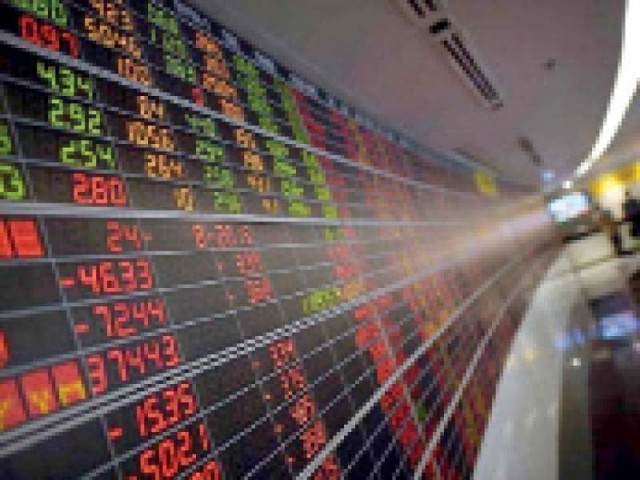Companies at PSX post record high profit
Earnings of firms included in KSE-100 rise 51.6% quarter-on-quarter

Companies listed at the Pakistan Stock Exchange (PSX) and are part of the benchmark KSE-100 index have posted a record high profit for the quarter ended September 30, 2020 supporting the government’s narrative of a turnaround in the economy in the middle of Covid-19 pandemic.
Earlier, the bourse won the title of best Asian and second best world market in the same quarter.
“As the economy gradually transitioned to the recovery phase after the initial Covid-19 outbreak, earnings of the KSE-100 index displayed a record performance, rising 37.9% on a year-on-year basis and 51.6% on a quarter-on-quarter basis during the quarter ended September 2020 - the highest yearly jump in earnings during a quarter,” research house Arif Habib Limited (AHL) reported on Monday.
AHL Head of Research Tahir Abbas told The Express Tribune that a significant reduction of 625 basis points in the benchmark interest rate by the central bank from March-June 2020 played a leading role in turning around earnings of companies, especially those related to the manufacturing sector like fertiliser and cement.
Almost all the companies, particularly goods manufacturers, borrow from banks to meet day-to-day expenditures. “The low interest rate scenario helped them acquire loans at cheaper rates. This left a positive impact on net earnings of the companies,” he said.
Capital Stake said finance cost of 399 companies dropped 28% in the quarter (Jul-Sept 2020) compared to the same quarter of last year. They paid a total of Rs29 billion to banks on account of interest cost of loans.
AHL’s analysis is based on the KSE-100 index companies. It has included financial results of 89 out of 100 companies listed in the index as the remaining 11 companies have not disclosed their results yet. The companies included in its analysis represent almost 95.4% of market capitalisation of the benchmark index.
The KSE-100 index saw a tremendous growth in profitability under the lead of commercial banks whose net earnings increased 54% to Rs68.9 billion in the Jul-Sept 2020 quarter compared to the same quarter of last year. They were followed by the fertiliser manufacturing sector, whose profit surged 84% to Rs30.2 billion and the power generating sector whose net earnings rose 27.5% to Rs14.8 billion.
Earnings of the oil and gas exploration (E&P) sector contracted 4.8% at Rs50.5 billion in the quarter under review compared to the same quarter of last year, it said.
On a quarter-on-quarter basis, the index’s earnings grew 51.6%, led by the fertiliser sector (50.3%) and oil and gas exploration sector (36.5%), it added. Abbas said banks managed to report a tremendous growth in profit as they were yet to feel the impact of the significant cut in benchmark interest rate.
“Whether there is a rate cut or rate hike, the impact on banks’ profit always comes with a lag,” he said. Banks may see a drop in profit in the quarters to come, he projected.
Secondly, the fertiliser manufacturing sector’s profit increased on the back of strong sales of both major fertilisers - urea and DAP. The power generating sector posted higher profit on the basis of improved recovery of monthly bills.
The E&P sector’s profit contracted after prices of petroleum oil dropped to an average of $43 per barrel in Jul-Sept 2020 compared to around $53 in the same quarter of last year, he said. These days, Pakistan is witnessing a resurgence of Covid-19 cases. Almost no one is following the standard operating procedures (SOPs) to avoid the disease and this is dangerous for both the human being and national economy, he said.
Already, many European countries have re-imposed lockdowns including France and Germany to tackle Covid-19. The UK is also scheduled to re-impose the lockdown later this week. The government of Pakistan may consider imposing a smart (micro-level) lockdown instead of re-imposing it nationwide. “The lockdown in infected areas may hurt economic activities if infection cases appear in factories or in surrounding areas,” he said.
Published in The Express Tribune, November 4th, 2020.
Like Business on Facebook, follow @TribuneBiz on Twitter to stay informed and join in the conversation.



















COMMENTS
Comments are moderated and generally will be posted if they are on-topic and not abusive.
For more information, please see our Comments FAQ